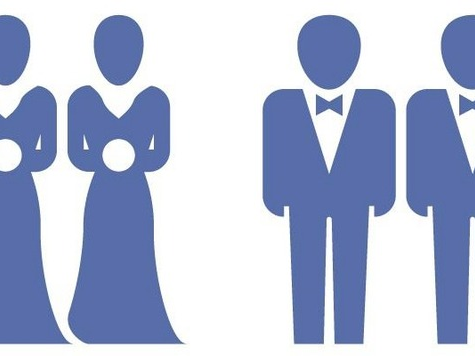The government has altered plans to allow gay couples to convert their civil partnerships to marriages, by allowing the conversion ceremony to take place at a range of venues including churches, synagogues, meeting houses, hotels and other registered venues.
Previously, the plans only included provision to convert the status of the partnership at a registry office. In order to avoid the “quadruple lock” put in place to appease religious opponents of gay marriage, only registrars will be able to perform the ceremony.
The announcement that civil partnerships would be able to be converted to marriages came in June, but left some couples disappointed that they would not be able to hold ceremonies in religious and other buildings. However, Pink News has reported that a source close to the Education Secretary told that website that the planned regulations have now been amended to allow for ceremonies to take place in venues other than registry offices. The couples will still have to attend a registry office to legalise the proceedings.
Writing for Pink News in June, Sajid Javid, the Conservative Minister for Equalities wrote: “For me, freedom has always been about the right to be who you are and love who you love. That’s why I was proud to walk through the “aye” lobby at the House of Commons in support of equal marriage.
“And that’s why I’m pleased to announce that, from 10 December, couples in England and Wales who have entered a Civil Partnership over the past decade will be free to convert it into a marriage.
“We’ve made the process of conversion as straightforward as possible. Couples will simply have to attend a Register Office and sign a declaration that they both wish to convert their Civil Partnership to a marriage in front of the Superintendent Registrar. That’s it.”
It is understood that couples can chose either to simply convert the civil partnership to a marriage and have it backdated via an administrative process for a nominal sum, or can take part in a wedding ceremony at a registry office. The change will mean that a third option will now be available to have the ceremony at a different venue, as long as the couple also attend the registry office.
If the third option is chosen, the registrar will still conduct the ceremony no matter where it is held. This is to avoid falling foul of the ‘quadruple lock’ – provisions written into the Same Sex Marriage Bill to ensure that religious people would not fall foul of the law if they objected to marrying same sex couples on religious grounds. Under the provision, the Church of England and the Church of Wales are both prohibited from conducting gay weddings. It also states that no legal action can be brought against any minister who refuses to allow their church to be used as a venue for a gay wedding.
The current minister for skills and equalities, Nick Boles said “I know how important it is for couples to have the option of marriage available to them. This is the final stage in ensuring every couple has the option to be married. This puts couples in control. They have the choice of whether they would like a simple conversion or would prefer to celebrate the occasion with a ceremony.”
The amendment has led to renewed fears that some gay couples may sue for the right to have their weddings in a church. However, the Church of England was adamant that this would not be the case. A spokesman told Breitbart London “Since Church of England churches do not conduct same sex marriages this change in policy is not a matter for us. Conversions from civil partnerships to same sex marriages will not be possible in Church of England churches.”
Colin Hart, Campaign Director of C4M, commented: “This is just the latest measure coming into force from this deeply flawed legislation, which was never voted on by British people and was rammed through Parliament with inadequate scrutiny.
“The legislation fails to protect religious freedom in our country and, as top lawyers have warned, opens up the real prospect that over time as the law develops vicars, priests and other marriage celebrants risk being sued if they decline to solemnise a gay marriage.
“Already we have seen those who back traditional marriage being sacked or dragged through the courts. In one such case, housing manager Adrian Smith was demoted and had his wages cut by 40 per cent for simply posting a message on his personal Facebook page which read ‘gay marriage in churches an equality too far?’
“Many MPs and peers have warned about these consequences but the Government continues to fail to act.”
Last year millionaire gay couple Barrie and Tony Drewitt-Barlow lodged a court action against the government’s decision to allow churches to opt out of performing gay weddings, saying “We feel we have the right as parishioners in our village to utilize the church we attend to get married.
“The only way forward for us now is to make a challenge in the courts against the church.
“It upsets me because I want it so much–a big lavish ceremony, the whole works. I just don’t think it is going to happen straight away. As much as people are saying this is a good thing, I am still not getting what I want.”

COMMENTS
Please let us know if you're having issues with commenting.